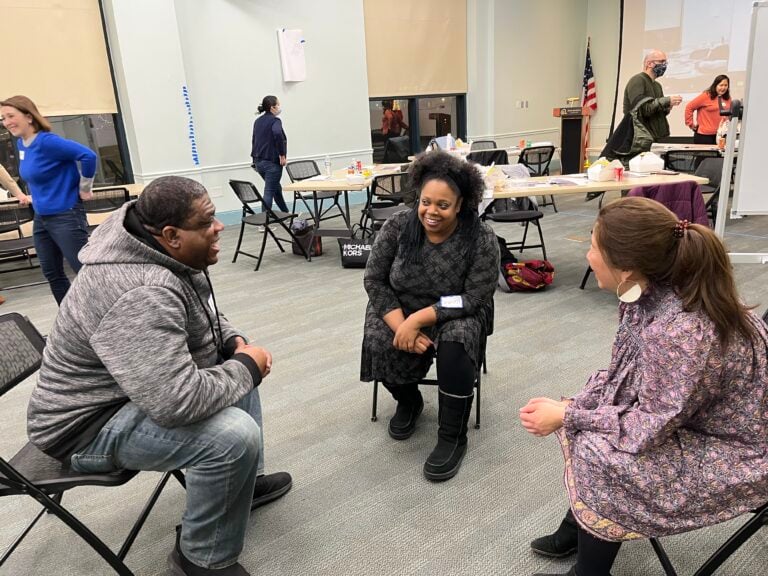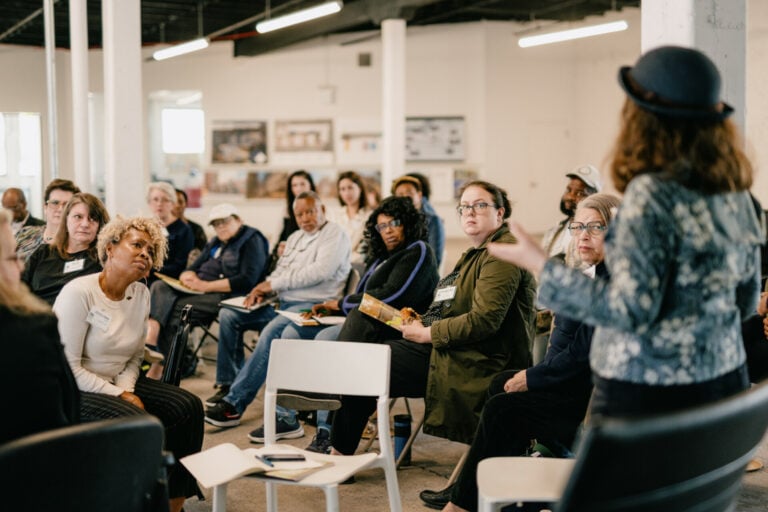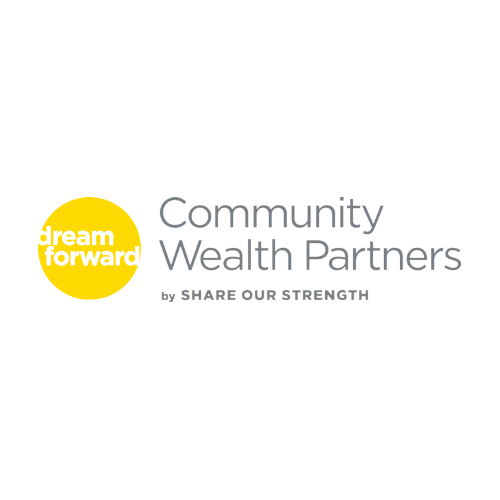Tools & Resources to Shift Power to Communities
Browse Menu
Looking at your role/function within your foundation.
What are listening practices that can shift power?
Assess how you are listening through a set of reflection questions.
Engage with community through participatory philanthropy
Participatory approaches center the leadership, wisdom, and voices of communities, shifting power from philanthropy’s traditional power centers (i.e., the donors and institutions that control the money) to the people and communities directly affected by the issues being addressed. Such approaches can be implemented in your grantmaking and across the entirety of a foundation’s functions, including governance, grants administration, and evaluation.
Remember that participatory approaches require trust among all parties to be authentic and effective. Make sure to invest in relationship-building to set the stage for the deeper partnership work that will be involved.
Get going with these tools and resources
This wide-ranging publication on community-driven philanthropy explores how grantmaking can include a broad and diverse set of voices and equips you to identify and implement accessible and transparent opportunities for nonprofits and communities to influence decision making.
This guide offers examples of different participatory practices and advice on the groundwork you’ll need to do — such as building trust and setting expectations — before engaging community members in participatory work.
Find recommendations, checklists, templates and discussion guides on launching a participatory philanthropy process; a detailed case study with lessons learned; and reflections on how power shifts can happen in your philanthropy.
This self-assessment helps gauge how effectively your foundation is incorporating participatory practices across all areas of operations, and to serve as a planning tool to increase your participatory work.
This tool builds your foundational understanding of child and youth participation in philanthropy and provides resources, practical considerations, and reflection questions to help you implement meaningful participatory practices.
This seminal guide looks at why and how funders are engaging in participatory grantmaking, sharing challenges, lessons learned, and best practices, and offers a number of case studies.
This project shares case studies and a library of resources to illuminate what is (and isn’t) a participatory strategy and describe how funders and nonprofits have designed and executed participatory strategic processes.
This guide offers practical tools, tips, and examples for integrating participatory learning into practice, such as integrating grantee and community input, and addressing limitations in traditional feedback loops.
Get inspired by what other funders are doing

Omaha Community Foundation (OCF) supports five Community Interest Funds run by committees made up of residents who are directly connected to or identify with the populations the funds aim to support. The committees are responsible for setting and guiding direction, determining the process for grant selection, making funding decisions, and selecting additional committee members. Prospective committee members apply to serve through an open application process and are selected by the existing committee members.
The foundation provides administrative support to the funds and capacity-building and other support to the committees and to grant applicants. It also helps committee members embrace their role as more than advisors or managers of the funds, but, what staff describe as “true owners of it.”


Before transitioning to a participatory model, Borealis Philanthropy’s Communities Transforming Policing Fund (CTPF) had a traditional grantmaking process in which grantees were selected solely by fund staff, mostly through an invite-only process. Now, deliberations and decisions are made by a participatory grantmaking committee, composed of community members identified by Borealis’s grantee partners. And an open application process has meant more small and emerging nonprofits have had the opportunity to receive support.
“Ultimately, our transition to a participatory grantmaking model not only created space for a diversity of voices with direct personal and professional experience to make decisions on the distribution of resources,” writes program director Jeree Thomas. “It also birthed new practices and ways of being in relationship that our team at Borealis did not have before.”

When ACT for Alexandria set out to establish a fund with a participatory-grantmaking approach, its first focus group with community leaders provided feedback that signaled the foundation did not yet have the track record or trust necessary for such an effort. In response, ACT slowed the fund’s timeline, prioritizing relationship building in its day-to-day work, creating more space for community voice, partnering more deeply with community-based organizations, and executing a community-centered strategic planning process for the whole foundation.
That process led ACT back to its plans for a participatory-grantmaking fund when members of the strategy planning team, composed primarily of Alexandrians with lived experience at the intersection of race, immigration, and poverty, agreed to work on the fund’s inaugural community advisory board.


The Indigenous Women’s Flow Fund (IWFF) convenes five Indigenous women — described as artists, seed savers, poets, organizers, mothers, daughters, and grandmothers — to shape the themes of grantmaking programs, identify groups to support, and make final decisions on grants. An IWFF report says, “By making space for Indigenous women to create their own practices, rituals, and relationships to giving, IWFF becomes an example of what is possible when communities are given the autonomy to design processes that work best from within their own cultures and wisdom.”

Brooklyn Org has transitioned all its strategic grantmaking (more than $4 million a year) to be conducted in partnership with community members. It employs a participatory model, including through its youth fellowship program where young people run their own grant program, reviewing proposals, conducting site visits, and making recommendations. Through its Brooklyn Elders Fund, the foundation distributes money by incorporating the advice of a rotating group of older residents who work alongside program staff to inform grantmaking and advocacy efforts. And foundation staff work with an advisory council of residents personally impacted by substance misuse or who have worked with impacted communities to determine how money from a Wellness and Recovery Fund should be distributed.
During ongoing listening tours in Brooklyn neighborhoods, the foundation actively recruits participants for its advisory councils (members are compensated) so that, as the president Jocelynne Rainey writes: “[W]e have a continuous and powerful pipeline of community informants who can become community decision makers at their community foundation.”


During a partnership between the City of Philadelphia and the Scattergood Foundation, the Overdose Prevention and Community Healing Fund used national opioid settlement money to address the harms of the opioid epidemic. As one of the foundation’s three “Participatory Funds” at the time, the Prevention Fund involved impacted residents in decision making, such as through a Community Advisory Committee that helped set grantmaking strategy. A committee member’s experience of having lost a loved one to overdose had led the group to reframe the fund’s grant focus areas to elevate needs around community and family healing.
In addition to the advisory committee, Community Granting Groups (CGG) in each of the fund’s neighborhoods of focus had reviewed applications and made selections for awards through a facilitated participatory process. CGG members, most of whom had been in recovery and/or had cared for a loved one in addiction, were careful not to evaluate grant applications based on grammar, spelling, or writing style, but rather on the organization’s impact. Members also shared their personal experiences with organizations, as well as the reputation that organizations had in the community. Caitlin O’Brien, Scattergood’s director of learning and community impact, says this process helped identify organizations that were deeply rooted in their communities, and lifted up grassroots groups that do not have access to professional grant writers and other resources, which often causes them to be overlooked by traditional philanthropy.
Explore this menu to spark the changes you want to see.
Mix and match to find the examples, resources, and reflections best suited to help you and your organization shift power to the people and communities at the heart of your work.
How to use the menu
Funders are moving toward listening and participatory practices at different rates and from different starting points and perspectives. We also know that shifting power is not easy work and requires a strong internal commitment and continuous learning. It’s best to be clear on your organization’s motivations, capabilities, and goals. As you engage with this menu, consider your funding practices, operations, policies, and values — and then identify where change will best serve your foundation and the people and communities you seek to serve.
We recommend examining the menu’s resources and examples with a willingness to turn kernels of ideas into something right for you. No matter where you start or the path you travel through this menu, we suggest spending time on the reflection questions, perhaps engaging colleagues to help you and your organization better understand and prepare for what it means to listen to shift power.
Our Participatory Philanthropy Toolkit, included as a resource in the menu, has a Funder Readiness Assessment that can be adapted to different listening practices and help prepare you to make changes in your priorities and practices.
How we choose the items
We offer a range of examples and resources because there are no one-size-fits-all solutions; and we share them in a menu format so you can choose what’s interesting or relevant to you and your foundation. We don’t rank the practices or the organizations employing them or intend to signal that any featured funder has met its listening goals across the board. Each example represents only a moment in time — a practice one of your peers told us (or an intermediary) about, and that we hope might inspire you to enhance your own listening work.
Similarly, we do not rank the resources, though we did select them based on a set of criteria, including:
- We and/or our partners have personally used the resource and find it is high-quality, promotes impact, and aligns with our power analysis
- The resource is widely and publicly available (not just to paid members) and, ideally, accessible to people with disabilities
- The resource is relevant to, and includes applicable lessons for, a variety of types of funders
- The resource is as evergreen as possible
New resources are always coming online. We hope that the ones we’ve included are helpful while also sparking your curiosity and helping you forge an ongoing relationship with the creators and other aligned efforts.
We are always looking to add more funder listening examples and more resources. Please reach out to our communications manager, Debra Blum, or take a few minutes to share your stories and ideas on our Lift Up Listening online form.
Have questions about the menu or ideas for resources or examples?
Please reach out to our communications manager, Debra Blum.







